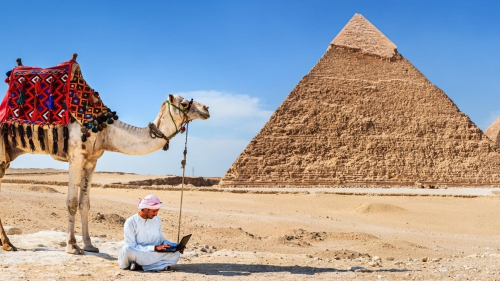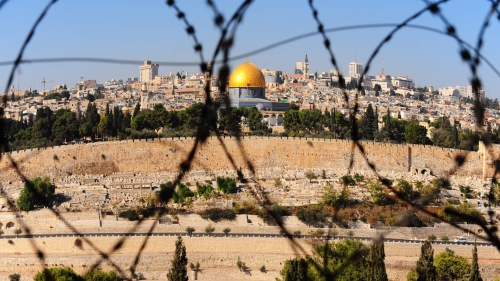What after Casablanca handshakes?

The Casablanca summit is over. The United States and Israel have spoken in glowing terms of how economic cohesion between the Arabs and Israel will cement cohesion. Starry eyed idealists are speaking of a great Middle East market. Now that the Arabs have become "good guys" there might be a flow of capital which along with the existing capital will turn the area into an "Industrial giant" and the deserts "green".
But many of us ask do we need to have to listen to outside voices to chart our economic development plans. For the last forty years the Arabs have been told what to do. And now they are being forced what to do.
The question is are there not economists, businessmen and technocrats amongst us who can think. Any why do we all have to look at Western experiences rather than tailor modern methods to suit our needs.
These thoughts went through my mind as I was reading a book about Japanese Experience and Nation building in South West Asia. Its author Najmal Saqib Khan was Pakistan's ambassador to Japan. Earlier he held several ambassadorial post in the Middle East.
The book brings to light the point that it is the "human rather than the physical capital that is a crucial factor in the modernization of economics"
Japan as a nation throughout history had few resources. But it had a people who applied their physical and mental energies to succeed. Success does not come easily. It does not come by raising slogans, cheering and clapping and talking and writing about how great we are.
Self adulation amongst many in the Arab world and nostalgic cravings for a bygone past were ingrained in our psyche. We are not critical of those who talk about the past. All what is asked for is that the present should be a conduit between past and future.
The Arabs have looked to the United States and the West for many of their technological and educational needs. They have not been that successful. The twenty first century is fast approaching.
Many problems confront us. They include the overall food security situation, depletion of water resources, environmental and health issues and above all an educational system that will cater to the modern day needs of the people.
It was through education that Japan which at the turn of the century was not known for its commercial skills and linguistic abilities embarked on a course to master Western technology, practice industrial systems and innovate them.
The stress on education and learning mobilized the human resources and was able to help society reach its goals.
Change was not feared. Nor was there coercive power to change.
As I went thorough the book I was impressed of how the Japanese leadership acted in full knowledge of the public to bring progressive change in existing conditions consensus was built to institute change. And because society was educated in the real sense the differences in opinion did not result in any violence as is exhibited in many other countries.
The world as a whole is moving rapidly on the road to technologically advanced goals. Communications have bridged the information gap. Even in some of the world's worst slums satellite dishes sprout like mushrooms. People see and observe. They wonder why they are leading impoverished and miserable lives while others with less resources are plodding happily ahead.
But then lessons have to be taken and what better lesson than from Japan. But then questions have to be asked as done by the author. How Japan a country accounting for 0.3 percent of the world's area and 3 percent of its population has succeeded in attaining a share of nearly 15 percent of the world's GNP.
How a country devastated by the cruel American bombings of Hiroshima and Nagasaki has surpassed the West in industrial enterprise and technological sophistication.
Let us not moan and complain. Let us benefit from the Japanese experience and look upon as an example of rapid modernization of a country that is first among equals and retains its rich cultural identity.

















